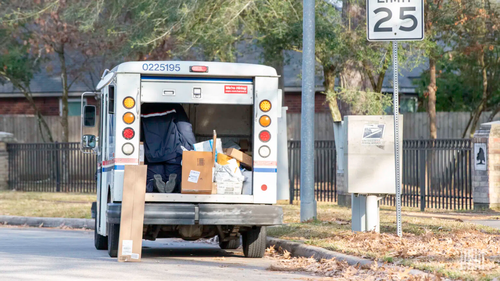Postal Service’s New Dimensional Surcharges Could Pack A Wallop
By Mark Solomon of Freight Waves
Effective this Sunday, the U.S. Postal Service will implement two parcel-delivery surcharges that will make it costlier for high-volume shippers to move their bigger packages.
A “dimensional noncompliance” fee of $1.50 per piece will be levied on parcels that are tendered without any dimensions appearing on the shipper manifest. A similar fee will apply for parcels that are tendered with dimensional information and either exceed 22 inches in length on the parcel’s longest side or are 1 cubic foot in volume.
The fees are designed to compensate the Postal Service for the time and resources spent measuring a package, as well as for the expense of handling an outsized shipment that can’t be run through a conveyor.
Under a separate “nonstandard” fee, the Postal Service will impose a $4 per-piece surcharge on parcels with lengths that exceed 22 inches but are capped at 30 inches. That fee would be replaced by a $15 per-piece levy should a parcel exceed 30 inches. An additional $15 per-piece surcharge would then be tacked on for parcels that are denser than 2 cubic feet.
The two $15 per-piece fees would be added to the $1.50 per-piece noncompliance fee, meaning that shippers of parcels of certain lengths and densities could pay $31.50 in combined surcharges for each package, in addition to the base shipping rate.
The dimensional noncompliance fee will apply to all commercial shipments tendered to the Postal Service. The nonstandard fee will apply to the quasi-governmental agency’s Postal Parcel Select, Priority Mail and Express Priority Mail products. High-volume postal shippers are major users of the three products. Surcharges would not apply to a Priority Mail Express shipment if the shipper is being charged a flat rate for the product.
The Postal Service will be measuring the exterior of the box to determine dimensions. Like other parcel-delivery providers, the Postal Service uses sophisticated dimensioning technology to properly calculate length and density. It is nearly impossible for shippers to submit inaccurate dimension specifications without the carriers catching them.
Approximately 1% to 2% of all parcels tendered to the Postal Service have characteristics that expose them to the surcharges, according to estimates from consultancy Shippo.
Most large shippers have preset dimension rules in their technical processes that ensure that box sizes and weights conform with carrier requirements.The surcharges were originally set to take effect Jan. 9. However, the Postal Regulatory Commission, an independent agency that must approve changes in postal rates and surcharges, delayed the implementation by nearly three months to give the marketplace time to adjust.
Private sector companies like FedEx Corp., and DHL eCommerce the e-commerce unit of German transport and logistics giant Deutsche Post DHL, have imposed similar surcharges for years. Surcharges on outsized shipments are designed to offset the costs of processing packages that can’t be conveyed and must be manually handled. It is also seen as an effort by carriers to discourage the tender of such shipments, which compromise the efficiency of their operations.
Tyler Durden
Thu, 03/31/2022 – 12:47
via ZeroHedge News https://ift.tt/0fo1rIJ Tyler Durden
